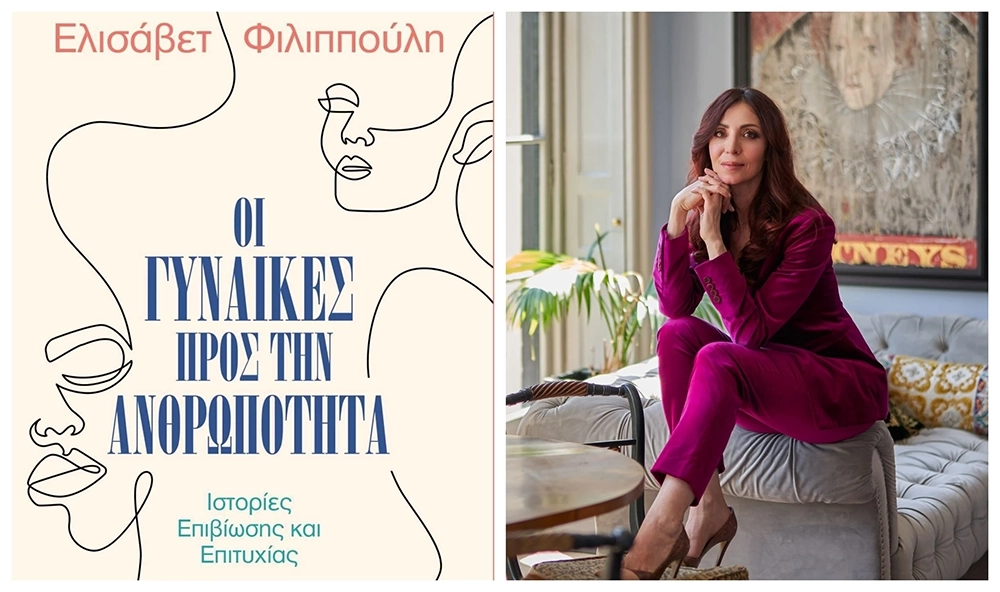From women to the world – Letters for a New Century

Women must raise their voices without fear, even if we pay a price for it.
Hypatia
Once upon a time there lived in Alexandria a woman who would seal with life, and her death human thought, feminism, and female leadership. Her name was Hypatia. You may have heard of the talented mathematician and Neoplatonic philosopher, daughter of the mathematician and astronomer Theon of Alexandria. In the same city, the great philosopher was born, taught, and died violently in 415 AD, some say at the age of 45 and others at 60.
Her father believed in the value of education. Wanting to secure the best possible education for his daughter, he sent her to Athens, where Hypatia studied at the Neoplatonic school of Plutarch the Younger and his daughter Asklipigenia, and at the school of Proclus, who was the director of the Athenian school after Plutarch and the Syrian and influenced her greatly.
Hypatia completes her studies and returns to Alexandria, where she begins to teach philosophy and mathematics, as the leader of the city’s neoplatonists. Her reputation as a great philosopher spread rapidly and she became especially popular for her strong analytical spirit, her dialectical ability, and for her incomparable beauty. An unruly spirit but with a philosophical baψκground and wise thinking, motivated people to defend their right to think, to be critical, and to wonder. She said that even if you think the wrong way, it is better than not thinking. She believed that in order to be ready for what the future holds, we must carefully study the theories and situations that surround us. Hypatia paid no attention to social, racial, and other discriminations. She fought with religions and that was what cost her life so prematurely and in a barbaric way. He battled against obscurantism and the notion of “have faith and doubt not” and said that “to rule by chaining people’s minds with chains of fear or the threat of punishment in another world, is also a use of violence.”
The truth may not change because it is believed or because it is challenged by the majority, but the truth usually bothers those with power whatever their nature: political, economic, religious, or otherwise. So Hypatia was savagely murdered by a mob of Christians who committed one of the most brutal murders in history: they butchered her with smash pieces of vases, removed her eyeballs with sharp shells, and burned her scattered and bloodied limbs. How much rage, how much revenge, nothing is left of this “sinful, unbelieving, shameless existence”. That’s what they thought. The thought of Hypatia, her legacy, was elevated above obscure majorities and passed into eternity.
Whatever your name is, we are here, we are near you, speak, shout, act, expose.
Nawal
Five years ago, when I met an amazing woman, writer, doctor and activist, Nawal El Saadawi, we discussed, among other things, issues of women’s oppression and the importance of cultivating in women the confidence of leadership. Nawal, who died in her 90s in April 2021, was from Egypt. In difficult times and in authoritarian societies with religious fundamentalism, she suffered and was imprisoned for his activism in favor of freedom, human rights, and gender equality. She is considered the most important feminist in the Arab world. I told her about Hypatia, whose work she had of course studied. I remember her words: “Women must always say without fear what they believe, our point of view, even when it goes against the beliefs of many. That means leadership. The power of opinion. The power of decision, the power of not being afraid to tell the truth. Women must stand fearlessly in the face of the risk of paying a price for speaking out, acting, and reacting. Let’s pay for it! It’s the only way to change this world for the better, to make it more equal and more women-friendly.”
Today, in 2022, our societies are endangered by various types of dictatorships and mobs, visible and invisible, that control social networks and often turn them into quicksand for women and not only. If we look at the statistics of the last decades we will see that we have more women in the decision-making centers, in politics, business, and society On the other hand, women are to a large extent victims of abuse, violence, and revenge. They are slandered by partners they trusted, stigmatized by their social environment, and marginalized by their own families. This voice of Hypatia, the voice of Nawal, but also of Malala, and of Eleni and of Caroline, and of every woman who has lost her life at the hands of a man or is threatened by him, let it be strengthened through the voices of all of us. Let us encourage together with the heart of every woman, of any age, who experiences violence, blackmail, exploitation, and abuse.
What's Your Reaction?
Elizabeth Filippouli is a writer, journalist, and the Founder of Global Thinkers Forum (GTF) and Athena40.




